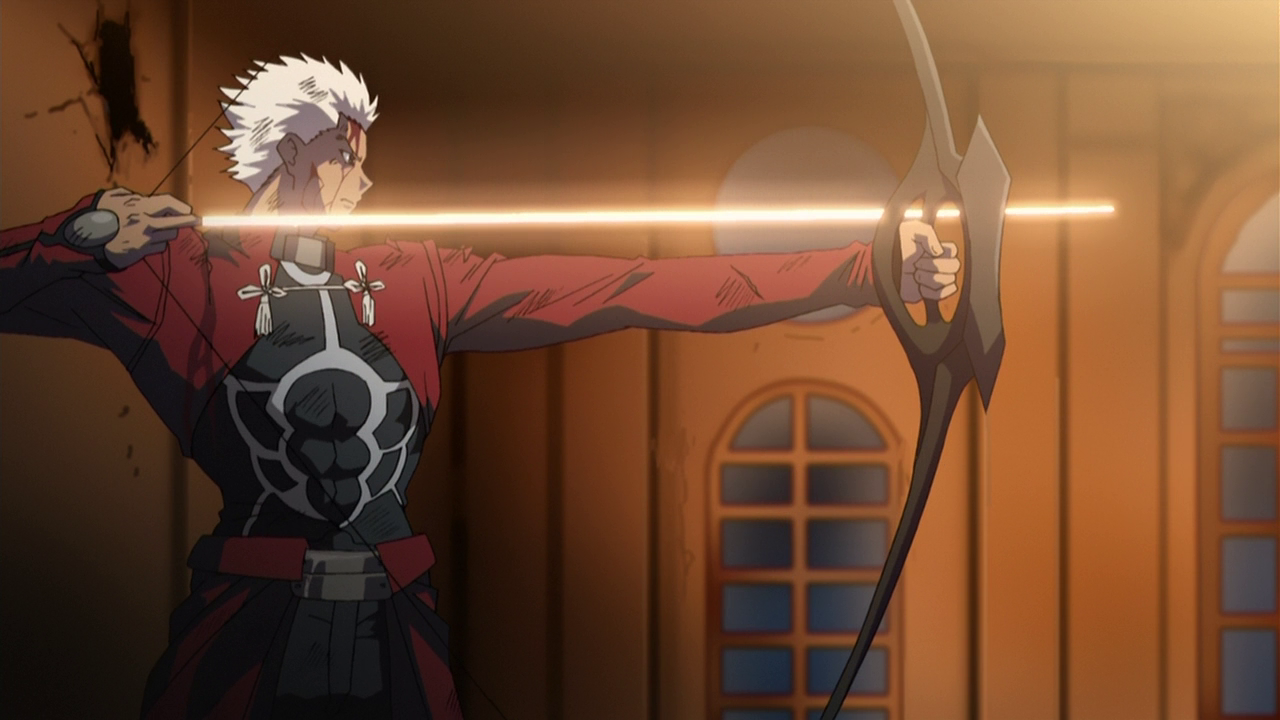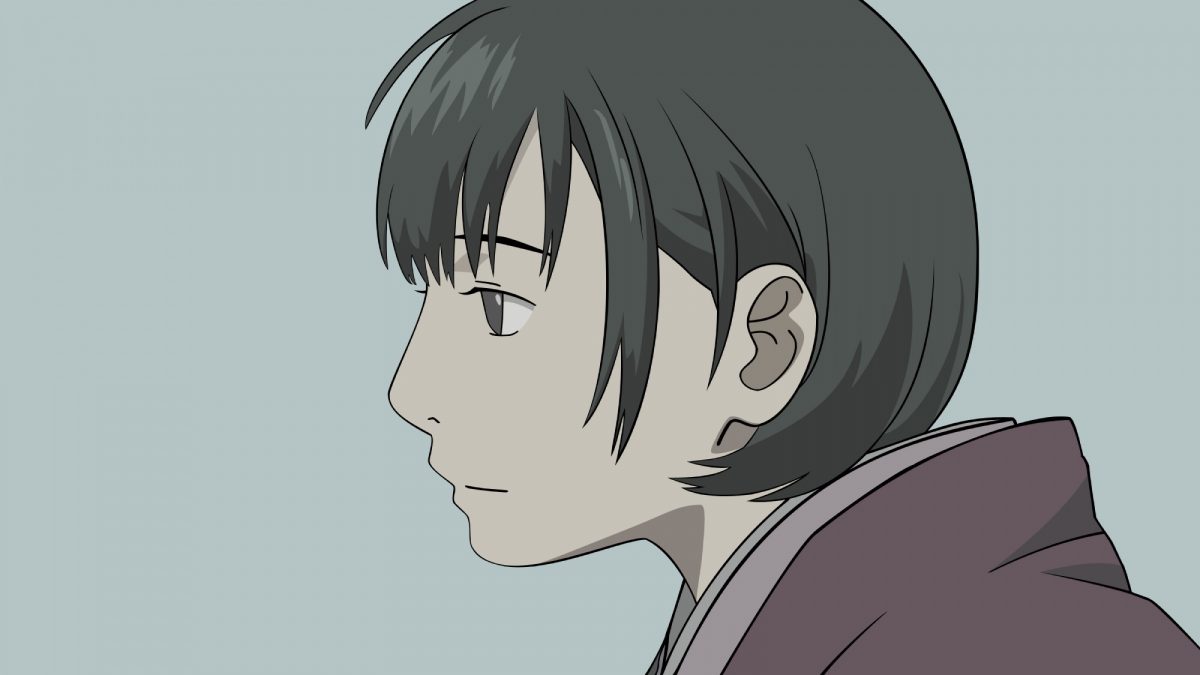Looking back on Mushishi, I suspect that this episode (episode 20) will rank as one of my favourites. Every episode has had that unique air of mystisism; a beautiful sense of magic that I have come to love, but still, rarely have a felt so attached to the characters as I did in this episode.
It begins with Ginko paying a visit to an old friend called Tanyu; this young woman (who I guess is around the same age as Ginko) suffers from a curse brought down on her family by a particularly strong, and frankly evil sounding mushi. The curse means that from birth, her right leg is paralyzed and covered with a pitch black birthmark, and the only way she can lift the curse is by listening to and then writing down the tales of the various Mushishi that pass through her part of the world. By means of flashback, we discover this is how Tanyu first meets Ginko.
Despite being one of the slower episodes, the unsettling world of Mushishi is presented here in a striking and magical way; mirroring the first episode, here written words literally jump off pages and fly about rooms- essentially, we are overcome by the simple notion of taking something we all assume is a static, never changing medium and injecting it with life.
Stunning aethetics aside, I loved this episode because of the underplayed friendship between Ginko and Tanyu- and indeed, Tanyu herself. Far from getting down about her disability, she is a notably strong willed and good natured person who’s boundless optimism bounces off of Ginko’s sarcastic wit like sunshine. The way they interact and talk to each other shows us they have an undoubtedly warm friendship (and forgive me for getting ahead of myself here- potential romance) and rather than let themselves be overcome with sadness, the characters here are full of life and a joy to watch.
A lot of Mushishi is about conveying a moral, or an idea concerning as vast a subject as spirituality, but episode 20 deals not with such an overbearing sense of responsibly as the simple friendship between two adults. It was a great episode.

